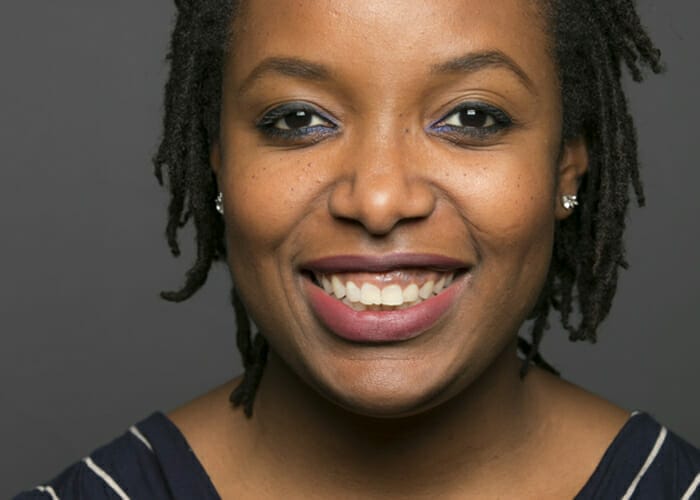Climate change is a seemingly intractable problem. With partial metrics that limit our understanding of real impact and agency actors fragmented, it seems the industry won’t make progress despite its best intentions.
They say madness is doing the same thing over and over again and expecting different results. Is that what we’re doing here?
In his seminal lecture series: Beyond ESG: systems solutions for sustainability, Duncan Austin likens our activity to being in quicksand. The more effort you make to get out, the more it sucks you in further.
Anthropologist George Bateson, in the 1950s, referred to this as a ‘double bind’ problem where what we do, seems to make things worse and this is where frustration and powerlessness sets in. Austin argues that this is a signal from our brain, indicating our rational behaviour is failing to break us out from some unrecognised or unacknowledged deeper problem.
This is what is happening with current attempts to address the climate challenge – whether we call it ESG, SRI, CSR, or impact investing, with the associated slogans ‘win-win’, ‘shared value’ and ‘doing well while doing good’.
While these strategies have been somewhat helpful in triggering important innovations and accelerating greater awareness of the climate challenge, the uncomfortable truth is that emissions continue to rise.
There remain unhelpful tensions between current ESG market behaviours which are profit-led and growth based, and ecological needs which are demand-reducing. If we fail to, as in the case of the quicksand analogy, get help from higher ground, we are doomed to at best have minimal impact, and at worse, dig ourselves into a deeper hole which, one climate tipping point later, we are unable to exit. It seems we need a massive re-think and help from higher ground.
Regulatory change and strong organisations
What does this look like? The obvious starting point is supportive regulation and policy intervention. Systemic problems often need systemic rule changes.
In its October 2021 statement, GFANZ noted: ‘Now we need governments to help get the job done, by setting the ambitious policies that can unlock, accelerate and help direct investment to where it’s needed most.’
We intuitively know that markets can’t solve this alone. But while this remains a work in progress, there are important roles for the investment ecosystem to play. To paraphrase, Teddy Roosevelt, we need to do all we can with what we’ve got. And this includes petitioning regulators for greater clarity on key areas such as fiduciary duty.
At an organisational level, we need to start with a strong vision. COP26 reinforced an already widening shift in purpose – from a previous sole focus on investment returns to contributing net positives to multiple stakeholders and the climate challenge. It served as a strong signal to those in the financial sector to come on board and focus attention to where capital should be moving.
This new purpose and vision will require substantial changes within our organisations and for that we will need leadership coalitions, disciplined change processes and business models that have true commitments to net zero, change capabilities and an effective culture.
We also need stronger and more robust investment framing. Systems thinking suggests a number of alternatives by helping us to better understand complex systems and avoid carbon tunnel vision.
As Tina Jensen from the Global Reporting Initiative (GRI) noted: ‘If we achieve net-zero emissions yet overlook human rights, or fail to safeguard biodiversity, what will this mean for the wellbeing of people and planet?’ One such framing is the shift from conventional risk/return metrics with an ESG ‘add on’ to allocating capital to 3-D mandates that focus on risk, return and real-world impacts. This is an idea whose time has finally come. It will necessarily involve organisations allocating significant amounts of primary investment to achieve these real-world impacts. Investors also need to ensure that they have the staying power discipline, and long-term horizon mindset to remain on course.
We need a rise in strategic engagement, with industry and policy-level engagement playing a bigger part. Here, the word ‘strategic’ emphasises the active part, with voting regular proxies considered mere table stakes. For a better-balanced value chain, there needs to be significant transformation in active ownership from the more common approach of a 1-2 per cent spend of investment resources on stewardship to more like 10 per cent. This rallying call may seem ambitious. But like the front-end loaded nature of net-zero pledges, it can act as a sensitive intervention point where disproportional benefits in climate action are achieved through motivating funds to be more committed upfront.
In addition, we need more strategic partnerships to support innovation and idea generation. Greater collaboration is necessary to unleash the real power of capital to address climate change at speed and scale. This is where the finance sector, can punch above its weight by working with people (through democratised finance), with corporations (through enlightened ownership) and with policymakers (through empowering regulation). In other words, while the current model thinks alpha, the future model thinks about value creation from more sources. And these sources also include working with coalitions, such as GFANZ, PRI, IIGCC & CA100+ who are moving the needle.
Finally, and perhaps most importantly, we need to recognise that deeper cultural changes are required. We need to move beyond admitting that our activities create externalities to accepting the sheer scale of their effects on our planet.
Austin calls this ‘sustained acceptance’ which is distinct from ‘mere theoretical admission’. We are becoming experts at ever increasing disclosure reporting but ‘acceptance will really show itself when impacts that we have long ago measured become widely and meaning.
Marisa Hall is the co-head of the Thinking Ahead Group, an independent research team at Willis Towers Watson and executive to the Thinking Ahead Institute.


